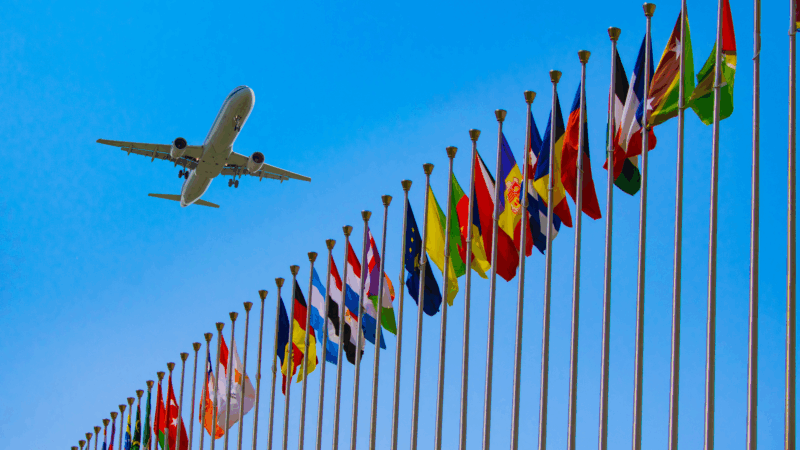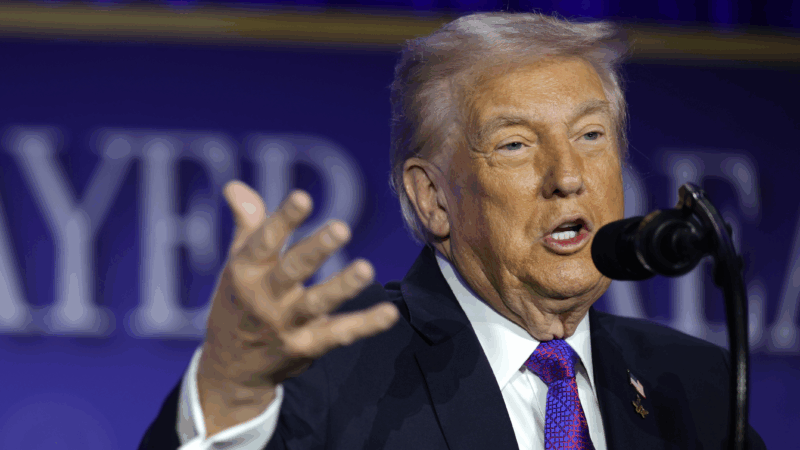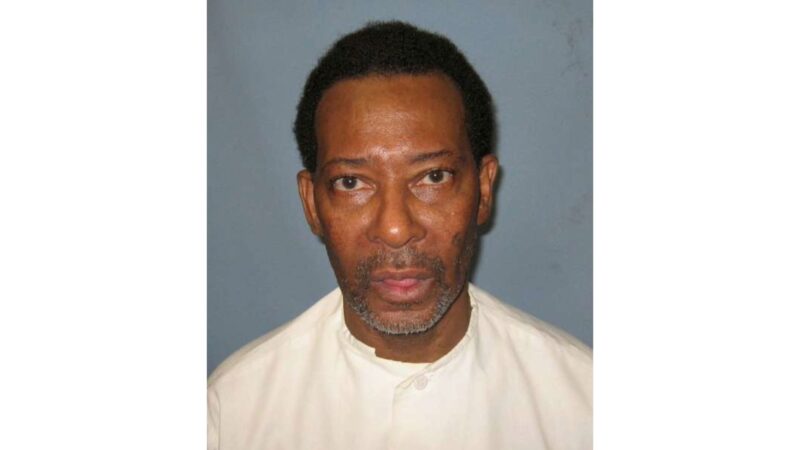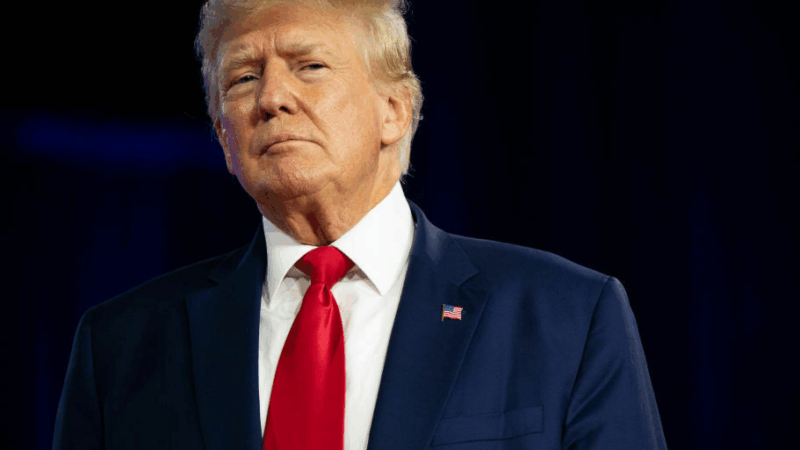Trump Administration could impose a travel ban on dozens more countries
The Trump administration is considering a move that could nearly triple the number of countries subject to a travel ban, according to a State Department memo obtained by NPR. Up to 36 additional nations could be added to the list of 12 that were placed under full or partial restrictions earlier this month.
The memo to diplomats in about two dozen African nations, along with others in Central Asia, the Caribbean and several Pacific Island countries, demands that they detail by this Wednesday, how they will begin to address U.S. concerns and comply with new State Department requirements.
Signed by Secretary of State Marco Rubio, the memo, first reported by The Washington Post, says the 36 countries have been identified as having “vetting and screening information [that] is so deficient as to warrant a partial or full suspension” of entry of their citizens to the U.S. It’s the latest move in President Donald Trump’s immigration crackdown that has included mass deportations of immigrants accused or convicted of criminal activity and others.
The memo says, some of the nations are designated as state sponsors of terror, or some of their citizens have been “involved with acts of terrorism in the United States.” Some lack a credible “government authority to produce reliable identity documents,” keep unreliable criminal records, or are beset by “widespread government fraud,” according to the memo. Other concerns include claims that the countries have high rates of citizens overstaying visas, or citizens who have been “involved in antisemitic or Anti-American activity in the United States.” Countries that do not address concerns could be recommended for a travel ban as soon as August.
Limiting entry of individuals from those countries “will help secure the American homeland and make our communities safer,” said Department of Homeland Security spokesperson Tricia McLaughlin in a statement to NPR.
The memo also cites requirements that foreign governments be “fully cooperative” in removing foreign nationals when it is “vital to U.S. national security.” And any specific concerns that the U.S. may have with a specific country could be “mitigated,” the memo says, if that country is willing to accept deportees from the U.S. who cannot be sent back to their country of origin.
“This is a necessary step to garner cooperation from foreign governments to accept deportation flights of their own citizens, strengthen national security, and help restore integrity to the immigration system,” McLaughlin said.
Critics of the travel bans, however, have railed against President Trump’s previous bans as racially and religiously discriminatory for targeting many African and Muslim-majority nations.
The countries listed in the memo as facing bans are: Angola; Antigua and Barbuda; Benin; Bhutan; Burkina Faso; Cabo Verde; Cambodia; Cameroon; Côte D’Ivoire; Democratic Republic of Congo; Djibouti; Dominica; Ethiopia; Egypt; Gabon; The Gambia; Ghana; Kyrgyzstan; Liberia; Malawi; Mauritania; Niger; Nigeria; Saint Kitts and Nevis; Saint Lucia; Sao Tome and Principe; Senegal; South Sudan; Syria; Tanzania; Tonga; Tuvalu; Uganda; Vanuatu; Zambia; and Zimbabwe.
Nations already fully banned on June 4 are: Afghanistan, Myanmar, Chad, Republic of Congo, Equatorial Guinea, Eritrea, Haiti, Iran, Libya, Somalia, Sudan and Yemen. Those partially banned are Burundi, Cuba, Laos, Sierra Leone, Togo, Turkmenistan and Venezuela.
In his first term in office, Trump banned travelers from seven Muslim-majority countries, but the order was rescinded under the Biden administration.
Mariah Carey, coffee makers and other highlights from the Olympic opening ceremony
NPR reporters at the Milan opening ceremony layered up and took notes.
Trump’s harsh immigration tactics are taking a political hit
President Trump's popularity on one of his political strengths is in jeopardy.
A drop in CDC health alerts leaves doctors ‘flying blind’
Doctors and public health officials are concerned about the drop in health alerts from the Centers for Disease Control and Prevention since President Trump returned for a second term.
Photos: Highlights from the Winter Olympics opening ceremony
Athletes from around the world attended the 2026 Winter Olympics opening ceremony in Milan.
Alabama sets execution for man in auto parts store customer’s death
Gov. Kay Ivey on Thursday set a March 12 execution using nitrogen gas for Charles “Sonny” Burton. Burton was convicted as an accomplice in the shooting death of Doug Battle, a customer who was killed during an 1991 robbery of an auto parts store in Talladega.
Trump posts racist meme of the Obamas — then deletes it
Trump's racist post came at the end of a minute-long video promoting conspiracy theories about the 2020 election.







